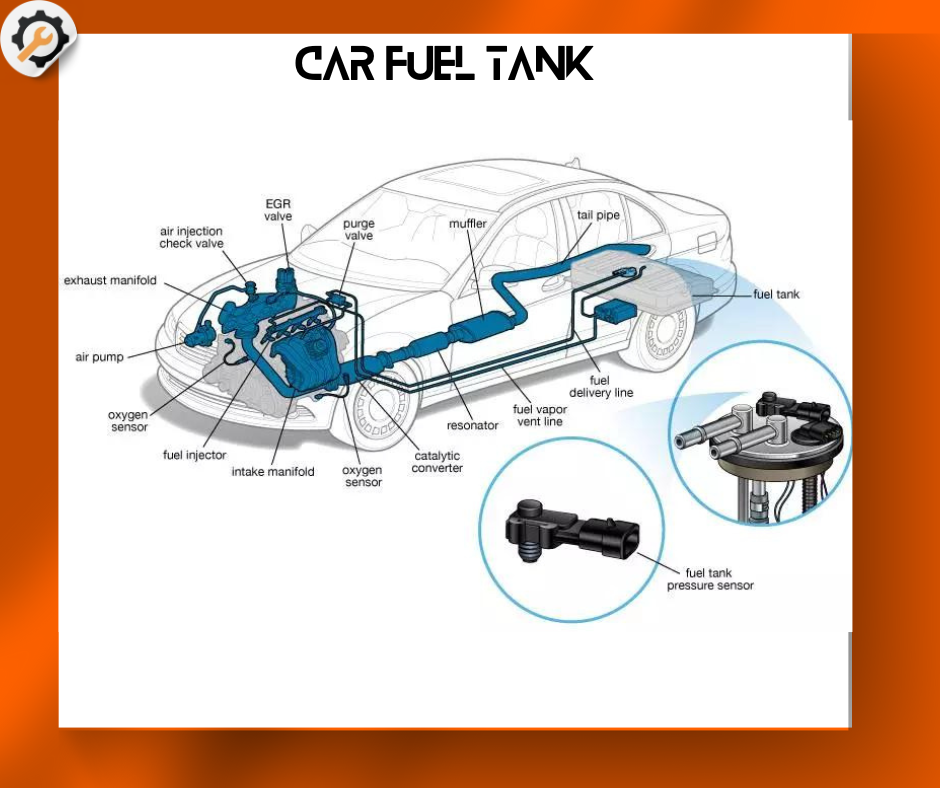Impact of a Dirty Fuel Tank on Your Car's Performance

Your car's fuel tank plays a critical role in delivering clean fuel to the engine. However, over time, dirt, debris, and contaminants can accumulate at the bottom of the tank. While they may seem harmless at first, these particles can wreak havoc on your car's fuel system, clogging fuel injectors, reducing engine performance, and even leading to costly repairs. Let’s dive into how a dirty fuel tank can affect your car and why regular maintenance is crucial for peak performance.
How Contaminants Enter Your Fuel Tank
Most people assume that fuel is clean, but it often contains small particles or water that can end up in your fuel tank. Over time, these contaminants settle at the bottom of the tank, and as fuel levels drop, your car can start drawing from this dirt-filled reserve.
Here’s how contaminants sneak into your fuel system:
- Dirty Fuel: Not all fuel stations are equal. Fuel from older, poorly maintained stations can contain impurities that end up in your tank.
- Condensation: Moisture can build up inside the fuel tank, especially in cold climates. This water can mix with the fuel, causing rust and corrosion inside the tank.
- Fuel Degradation: If fuel sits in the tank for long periods, it begins to break down and form varnish-like deposits that clog up the system.
How a Dirty Fuel Tank Affects Your Car’s Performance
-
Clogged Fuel Injectors: The fuel injectors spray fuel into the engine’s combustion chamber, but if dirt or contaminants get through, it can clog the injectors. This results in uneven fuel delivery, poor acceleration, and rough idling.
-
Reduced Fuel Efficiency: When your car’s fuel system is dirty, it has to work harder to get the fuel it needs, leading to a decrease in fuel economy. You’ll find yourself filling up more often as the dirty fuel tank impacts the overall efficiency of your engine.
-
Engine Stalling: In severe cases, the fuel filter and injectors can become so clogged that fuel flow is restricted, causing the engine to stall or fail to start altogether.
-
Corroded Fuel Lines: Contaminants can also damage the fuel lines, leading to corrosion and potential leaks. If not addressed, this can cause more serious problems, including fire hazards.
-
Premature Wear of Fuel Pump: The fuel pump is responsible for delivering fuel from the tank to the engine. A dirty fuel tank means the pump has to work harder to push the contaminated fuel through, leading to premature wear and possible failure.
Signs Your Fuel Tank Needs Attention
How do you know if your fuel tank is causing issues? Here are some telltale signs:
- Loss of Power: If you notice your car losing power or struggling to accelerate, it could be due to clogged fuel injectors or a struggling fuel pump.
- Frequent Engine Misfires: When the engine isn’t receiving the proper amount of fuel, it can misfire or run roughly.
- Unusual Noises: A loud or whining fuel pump could indicate that it’s struggling to pump fuel through clogged filters.
- Check Engine Light: A dirty fuel system can trigger the check engine light, signaling that it’s time for a service.
How to Maintain Your Fuel Tank
Maintaining a clean fuel tank is key to keeping your car running smoothly and efficiently. Here are some steps to ensure your fuel system stays in top shape:
-
Regular Fuel Filter Changes: The fuel filter traps most of the contaminants before they reach the engine, but it needs to be changed periodically to remain effective. Follow your vehicle’s maintenance schedule for fuel filter replacements.
-
Use Quality Fuel: Fill up at reputable stations to minimize the risk of contaminated fuel. High-quality fuel not only contains fewer impurities but also includes additives that can help clean your fuel system.
-
Fuel Additives: Use a fuel system cleaner occasionally to remove any buildup or sludge that may have formed in the tank or fuel injectors.
-
Keep Your Tank Full: To reduce the chances of condensation forming inside the tank, try to keep your fuel tank at least half full, especially in colder months.
-
Professional Fuel System Cleaning: If your car is experiencing performance issues and you suspect the fuel system is the culprit, consider having a professional mechanic clean the tank, lines, and injectors.
Why Fuel Tank Maintenance Matters
Ignoring fuel tank maintenance can lead to a gradual decline in engine performance, poor fuel efficiency, and eventually, costly repairs. By regularly maintaining the fuel system, you ensure that your engine receives clean, contaminant-free fuel, which improves overall performance and extends the lifespan of critical components like the fuel pump and injectors.
At Sparesworld, we offer the parts and products you need to keep your fuel system clean and your car running smoothly. From fuel filters to cleaning additives, we’ve got everything to help you maintain a pristine fuel tank. Need advice on maintaining your fuel system? Contact our team for expert tips or to schedule a consultation!

 Loading..
Loading..